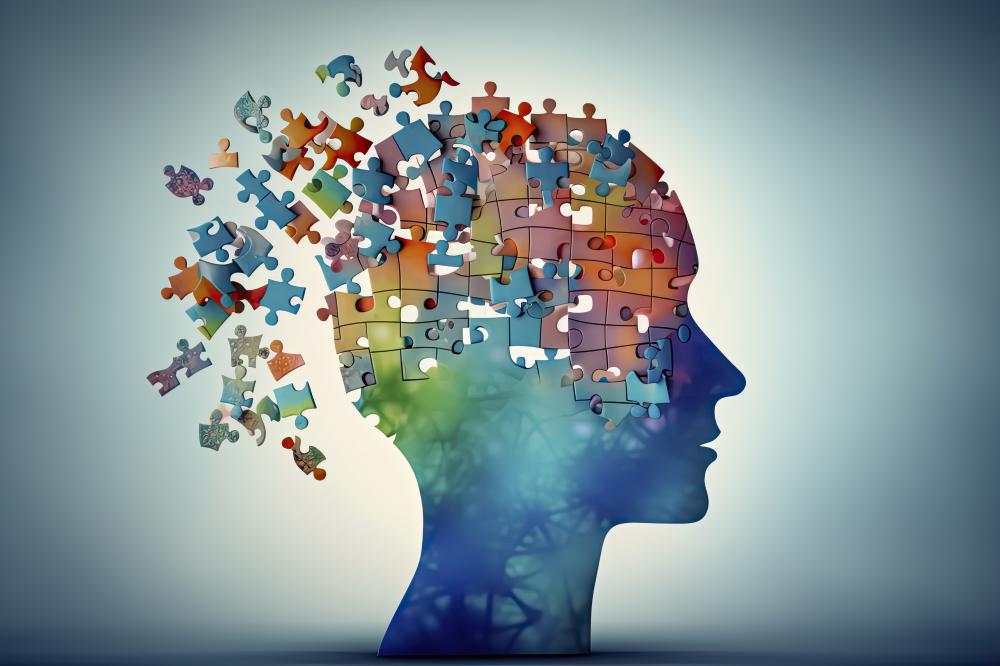Get In Touch
(855) 744-1177

Bipolar disorder, also known as manic-depressive illness, is a brain disorder that causes unusual shifts in mood, energy, activity levels, and the ability to carry out day-to-day tasks. Bipolar disorder is characterized by episodes of mood elevation (mania or hypomania) and depression, which can affect both mental well-being and physical health.
When seeking bipolar outpatient treatment in Los Angeles, it’s vital to understand that the journey to stabilization is as unique as the individuals experiencing it. Treatment often includes a combination of medication and psychotherapy tailored to the patient’s specific needs.
Medication Management
Medications such as mood stabilizers, antipsychotics, and sometimes antidepressants play a critical role in managing bipolar disorder symptoms. At Empower Residential Wellness, our clinicians focus on finding the right balance, aiming for the most effective treatment with the least amount of side effects. It’s a delicate balance that requires close monitoring and open communication between patients and providers.
Psychotherapeutic Approaches
Psychotherapy, including Cognitive Behavioral Therapy (CBT) and Dialectical Behavior Therapy (DBT), are integral to our approach. These therapies help individuals develop coping strategies, understand patterns in mood changes, and learn how to manage stressors effectively. Group therapy can also be a valuable tool, offering a sense of community and shared experiences.
Incorporating holistic practices alongside traditional treatments enriches the recovery process. Activities such as mindfulness, yoga, and nutrition counseling can support overall well-being and reinforce positive lifestyle changes. We believe embracing a holistic perspective encourages resilience and empowers individuals to take charge of their health on multiple levels.
Brain Health and Recovery
Understanding neuroplasticity – the brain’s ability to reorganize itself by forming new neural connections – is pivotal in the treatment of bipolar disorder. At our center, we introduce activities and therapies aimed at harnessing the brain’s plasticity to improve mental health outcomes.
Building a robust support system is essential for those grappling with bipolar disorder. Support can come from various sources, including family, friends, peer groups, and healthcare professionals. Our team works closely with clients’ networks to ensure they feel backed every step of the way.
The Importance of Family Therapy
Family therapy can play a pivotal role in treatment, as family members often provide crucial support. This form of therapy educates loved ones about the disorder, teaches them how to offer practical support, and helps mend any strained relationships.
Bipolar outpatient treatment Los Angeles serves as a bridge for many individuals transitioning from inpatient care or as a standalone option for those seeking flexibility. Outpatient care allows individuals to integrate treatment into their daily lives without the need for a residential stay.
Gradual Transition to Everyday Life
Outpatient programs often provide a structured yet adaptable framework that accommodates personal and professional commitments. This setup can be incredibly beneficial, enabling clients to apply coping mechanisms and skills in real-world settings under the guidance of their healthcare team.
Recognizing Early Signs
One of the most effective strategies in managing bipolar disorder is recognizing early symptoms. Early intervention can significantly improve outcomes. We emphasize education around noticing warning signs and taking proactive steps to mitigate the impact.
Educational Workshops and Resources
Providing clients and the community with educational resources and workshops ensures a deeper understanding of bipolar disorder. These resources also help in destigmatizing mental health challenges, fostering a more supportive environment for those affected.
In addition to proven therapies, exploring innovative approaches can be valuable. We keep abreast of the latest research and development in mental health treatments, integrating new strategies that have shown potential in helping individuals with bipolar disorder.
For example, therapies that target the circadian rhythm disturbances commonly found in bipolar disorder can significantly improve mood stability.
At Empower Residential Wellness, we are dedicated to excellence in bipolar outpatient treatment. Our therapies are designed to improve not only the symptoms of bipolar disorder but also to enhance the overall quality of life for our clients.
Individuals seeking bipolar outpatient treatment in Los Angeles will find a client-centered approach at our facility. Every aspect of our treatment is designed with the client in mind, from the serene environment of our center to the compassionate expertise of our staff.
We respect the dignity and individuality of each person we serve, recognizing that the path to wellness requires a partnership between the client and their care team. Client empowerment is at the heart of all we do, as we believe it is the key to sustaining recovery and building a fulfilling life beyond treatment.
While bipolar disorder is a chronic condition, it is also one that can be managed with ongoing care and support. Our commitment to our clients does not end when they exit our program; we provide aftercare support to ensure a smooth transition into their daily lives.
Maintaining a connection with our alumni through follow-up appointments and alumni events enables us to continue providing support and celebrating the milestones they achieve in their recovery journey.
At Empower Residential Wellness, we understand that finding the right bipolar outpatient treatment in Los Angeles is fundamental to our clients’ success. Every person’s experience with bipolar disorder is different, and so too should be their path to recovery. We are devoted to providing care that recognizes the individual, harnesses the power of an integrated approach, and supports lifelong health and happiness.

Indeed, outpatient treatment is a viable and effective option for managing bipolar disorder. At Empower Residential Wellness, we tailor a comprehensive treatment plan that includes medication management, therapy, and holistic practices. These are designed to be integrated into your daily routine, allowing you to maintain personal and professional responsibilities while receiving care. Our approach supports your journey to stability and empowers you to apply coping strategies in real-world scenarios under our guidance.
If you or a loved one with bipolar disorder is experiencing a severe episode of mania or depression, and there is a risk of harm to oneself or others, it is crucial to seek immediate help. The ER can provide the necessary intervention to stabilize the situation. Thereafter, we can collaborate with you to assess and enhance your outpatient treatment plan, ensuring a comprehensive support network that addresses both urgent and long-term needs.
The most successful bipolar treatment often involves a personalized combination of medication and psychotherapy. Medications like mood stabilizers or antipsychotics are usually the cornerstone of treatment, while therapeutic techniques such as CBT and DBT help in developing skills to manage the condition. At Empower Residential Wellness, we embrace innovation and holistic care, adding elements like mindfulness and family therapy to enrich the treatment process and promote resilience.
Even without insurance, there are ways to access treatment for bipolar disorder. Community mental health centers and clinics often offer services on a sliding scale based on income. At Empower Residential Wellness, we are committed to helping you navigate these options. We can also discuss alternative payment plans or connect you with resources and support groups that can aid in your journey towards management and recovery.
Family plays an indispensable role in the treatment of bipolar disorder. They offer everyday support, help monitor changes in mood, and can participate in therapy sessions. At our facility, we provide family therapy, which can strengthen family bonds, educate loved ones on how to be a source of support, and address any interpersonal issues that may arise from the disorder, thereby fostering a healthier environment for recovery.
Holistic approaches are fundamentally woven into our treatment philosophy. Integrating practices such as yoga, mindfulness, and nutrition counseling works synergistically with traditional medical treatments. They promote stress reduction, improve physical health, and foster neurological resilience–essential elements that support long-term management of bipolar disorder and contribute to an individual’s overall well-being.
Our commitment to excellence in care means we are always exploring cutting-edge treatments and advancements in the field. We pay close attention to emerging research, particularly in regards to therapies targeting circadian rhythm disturbances, which have shown promise in improving mood stability for our clients. Incorporating the latest evidence-based practices ensures we are providing the best possible care tailored to the evolving landscape of mental health treatments.